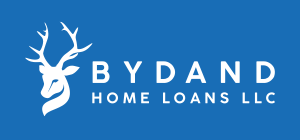
How to Qualify for a Conventional Mortgage
Photo by Kindel Media from Pexels
Are you curious about how to qualify for a conventional mortgage? Here are three main factors mortgage companies take a look at when considering you for this type of loan.
Factor #1: Credit Score
As of February 2021, the average credit score in the U.S. is 698. What's yours? If you don't know, you may want to consider finding out. Your credit score is usually the biggest factor in determining your ability to qualify for a home mortgage.
Why is your credit score so important? The short answer is that it's a way for companies to determine how well you handle your money and finances. A poor credit score means you've borrowed a lot of money and may have missed some payments. It's riskier for a company to take a bet on you by offering a mortgage. If you have a great credit score, it usually means that you manage your money well. You pay your bills on time and will most likely pay back the loan without any hiccups.
Generally, your credit score needs to be at least 620 to get a conventional mortgage. If your current score is below that, you'll either need to explore getting another type of loan (such as an FHA loan) or raise your credit score.
Factor #2: Debt-to-Income Ratio (DTI)
Your DTI is another way for companies to look at your overall finances to determine if you're a "good risk" to take out a mortgage.
What's your DTI? If you divide your total monthly debts by your total income, you get your debt-to-income ratio. So let's say you have 3 bills:
- A mortgage of $1,500/month
- A car payment of $300/month
- Student loans of $200/month
The total debt comes out to $2,000 per month. Now let's say your income is $5,000 per month, which means you make a little less than the median income of $68,000 per year. This puts your DTI at $2,000/$5,000 = 40%. But is that good or bad?
The short answer is it depends. A lot of mortgage lenders will extend a loan to borrowers with DTIs up to 43%. Some have a lower ceiling, others will let you get away with a slightly higher number. But 43% is generally seen as the highest you can go.
What's your DTI? If it's higher than 43%, look at ways to cut it down by paying off debt and/or increasing income.
Factor #3: Down Payment
How much money will you have available to put down on the house? Are you living in a home with a lot of equity built up, so you'll get cash when you sell the home and have a large down payment? Or have you struggled to save up, so you don't have much of a down payment available?
This is important for a conventional mortgage. Lenders like to see a down payment of at least 20%. A down payment is important because if you aren't able to pay the mortgage and have to foreclose, the lender wants to sell the house and make their money back.
The safe bet is to have a down payment of at least 20% of the home's purchase price.
Do you have any questions about how to qualify for a conventional mortgage? Give us a call at (877) 306-0222 and we'll answer any other questions you have.

